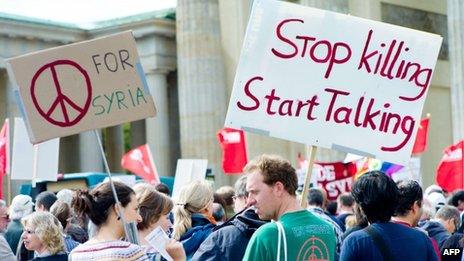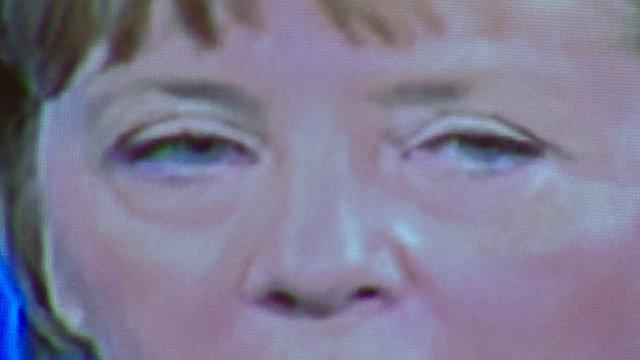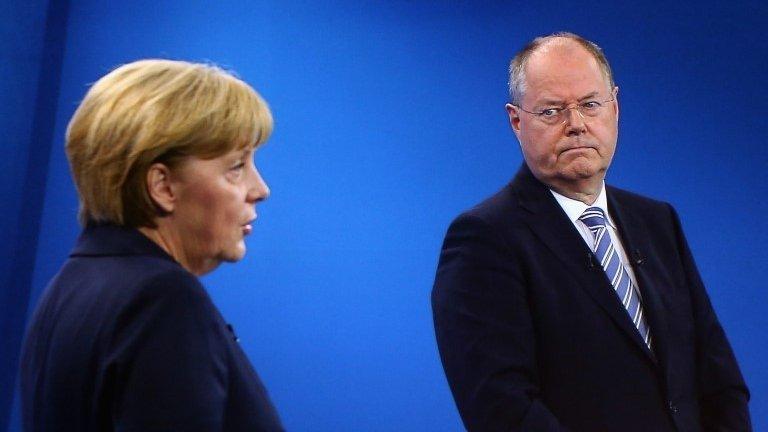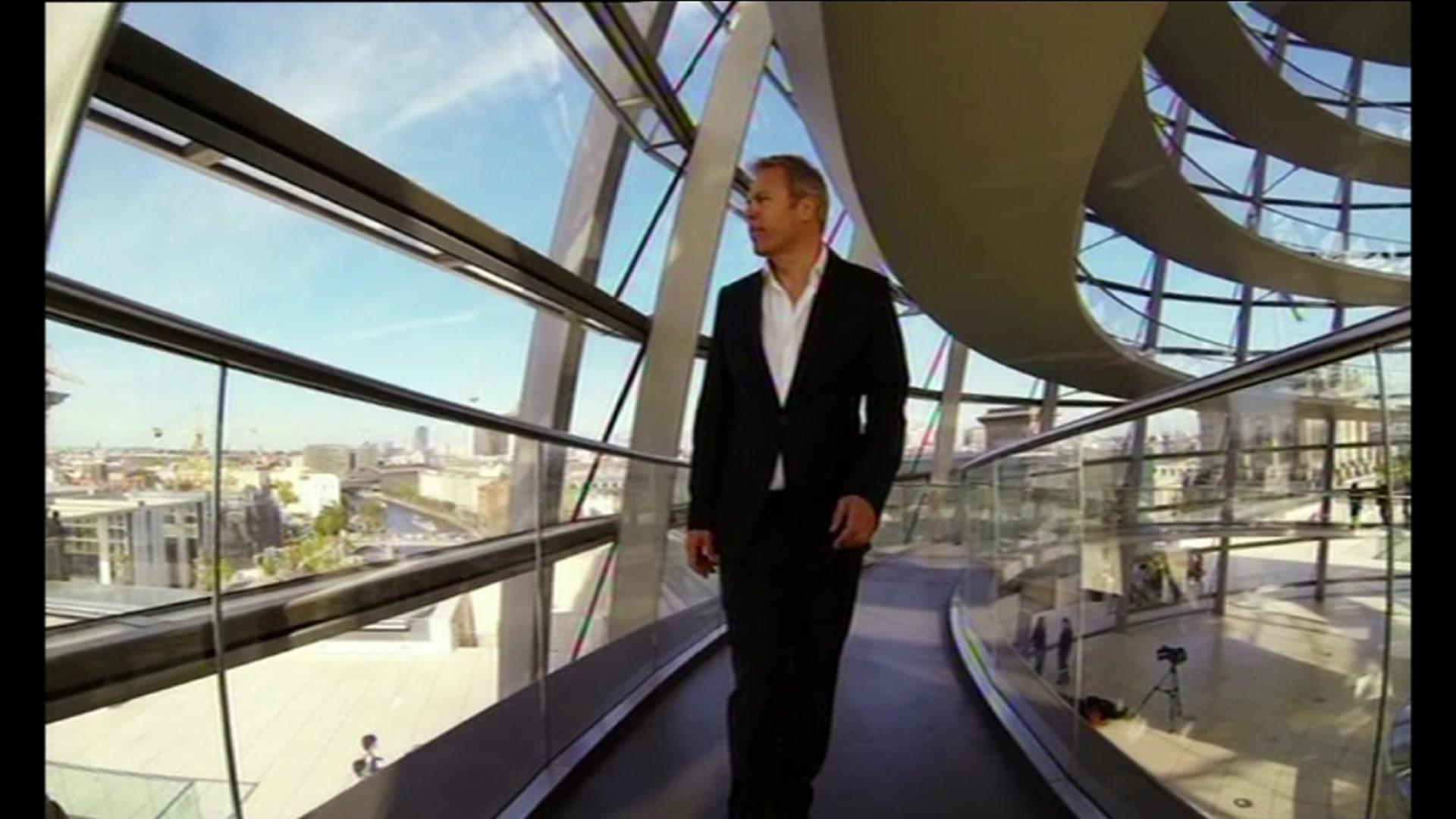Questions left unanswered in German election debate
- Published
- comments
Mrs Merkel pointed to Germany's healthy economy, calling it "the motor of growth" in Europe
There was an air of unreality about the only televised debate in the German elections. It was perhaps reflected in the amount of comment that focused on Angela Merkel's necklace in the German national colours.
The challenger, the social democrat Peer Steinbrueck, was feisty and emotional. Chancellor Merkel showed her trademark caution with flickers of irritation when she was twice told to wind up her answers.
But this was not a debate that reflected Germany's position as Europe's indispensable power.
Certainly the crisis in the eurozone featured. Chancellor Merkel was quick to claim credit for tackling it.
"At a time when we have had the worst European crisis," she said, "Germany is strong. Germany is the motor of growth. Germany is the anchor of stability in Europe."
Mr Steinbrueck said he would have had a different crisis strategy. "I would have said there certainly must be consolidation of budgets," he argued, "but not in a deadly dose for those countries".
"Deadly" was powerful criticism. Mr Steinbrueck said he would have combined austerity with a stimulus programme like the Marshall Plan.
With a smile on her face, Angela Merkel turned to him and said "you voted for everything". It was simple and lethal.
Time and again in Germany the opposition has supported bailouts of struggling countries in exchange for budgetary rigour.
Unanswered questions
And yet Mr Steinbrueck touched on the central and still unanswered question hanging over the eurozone. Has the strategy - cutting deficits and spending - condemned parts of Southern Europe to years of recession and high unemployment?
Europe needs that big debate and it was not forthcoming. Neither do we know where the funds will come from when, probably next year, Greece needs a third rescue.
Would either candidate be prepared for German taxpayers to accept losses on loans made so far? We don't know.
Going forward, how strong a banking union will Angela Merkel accept? Could she envisage a common resolution fund to help failing banks? Might Germany in the future accept Eurobonds or common European debt?
What did she mean last year when she spoke of "more Europe"? What, indeed, is her vision for the European Union? What is Peer Steinbrueck's vision for the EU? How much power would he cede to Brussels? Europeans looking on at the 90-minute debate will be none the wiser.
Mr Steinbrueck was at his liveliest when he spoke of his vision for a more socially-just Germany, when he accused the chancellor of presiding over a low-wage economy, when he demanded a mandatory minimum wage.
Angela Merkel's strategy, as it has been during this campaign, is to convey one message - that Germany is in safe hands.

Protests against a possible military strike in Syria have been staged in Berlin
On the other big issue of the day - Syria - both candidates confirmed that Germany would not take part in any military operation. "No," said the chancellor, "Germany will not participate in a military strike".
Referring to US President Barack Obama's decision to delay any attack until after a vote in Congress, the chancellor said she was "very glad that we have a few days to initiate the UN".
Peer Steinbrueck said he would be disappointed if the United States were to strike alone without an international mandate.
Germany has insisted there should be consequences for the chemical attack in Damascus but neither candidate indicated what those consequences should be.
It follows Europe's 10 days of silence - when it has been on the sidelines during the big arguments over how to respond to the use of chemical weapons.
In the event, the big German debate has probably not made a significant difference. Mr Steinbrueck, way behind in the polls, needed a game changer and he did not achieve that. The German newspaper, Bild, summed it up. "Steinbrueck strong. Merkel sovereign."
Earlier the Social Democrat leader had declared the rhino to be his favourite animal. "It starts very slowly," he said, "but when it gets going, nothing can stop it."
After the debate, the rhino might have started moving but it has a huge task to derail the campaign of Germany's most popular politician.
With the economy strong and consumer confidence robust, the campaign is increasingly about the personality of the two leaders. What 90 minutes of debate did not do was to reflect Germany's position as the dominant power in Europe.
- Published2 September 2013

- Published2 September 2013

- Published25 June 2013
